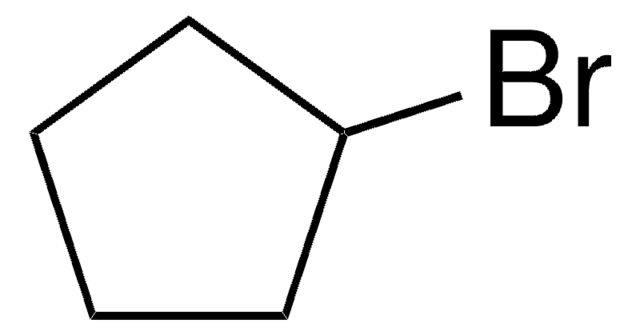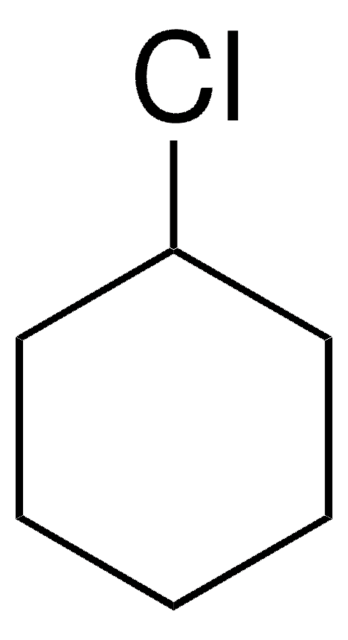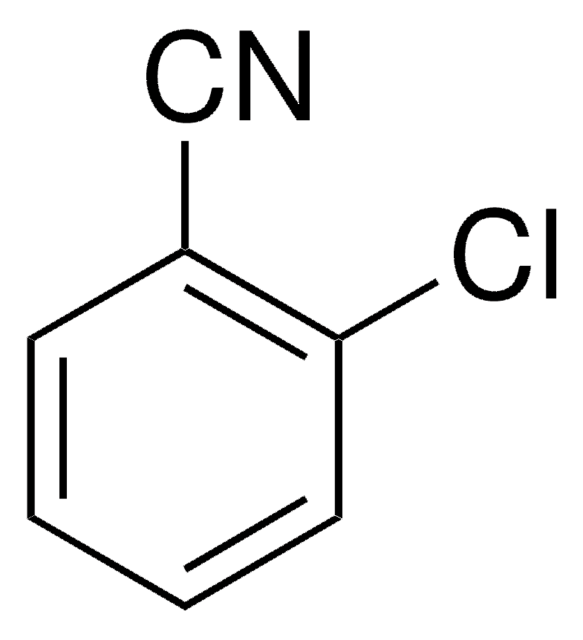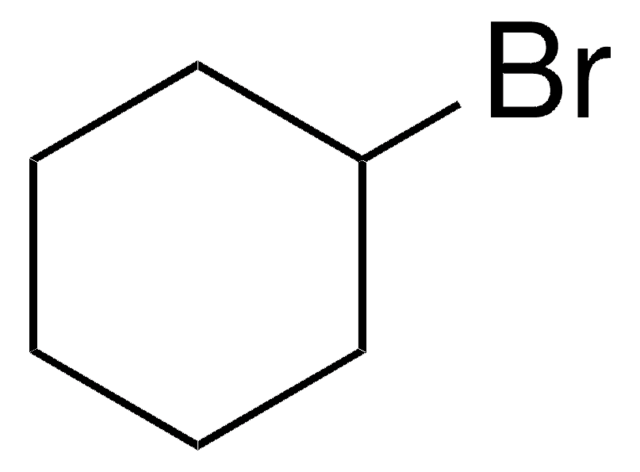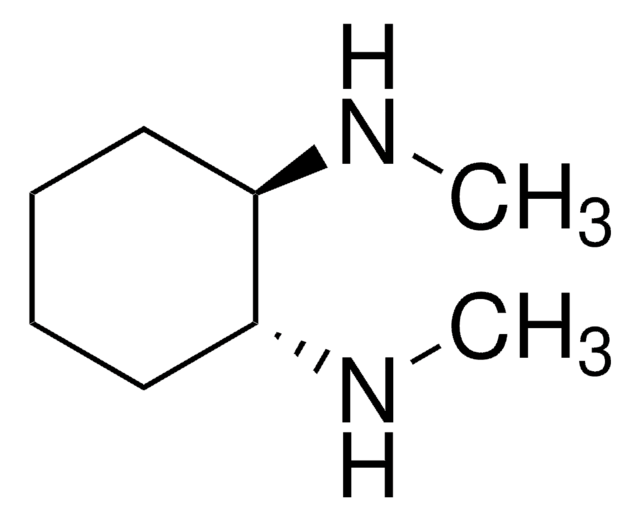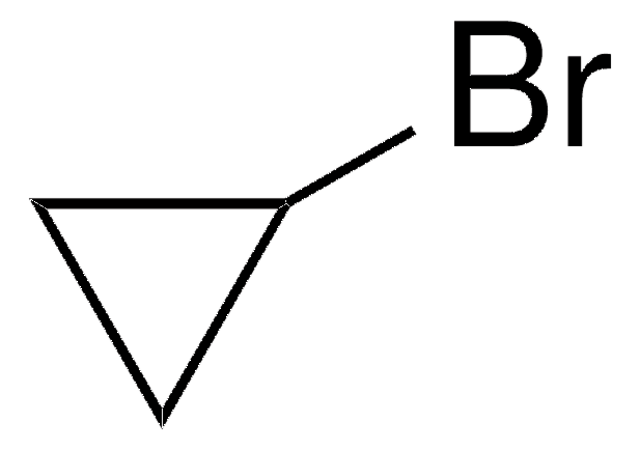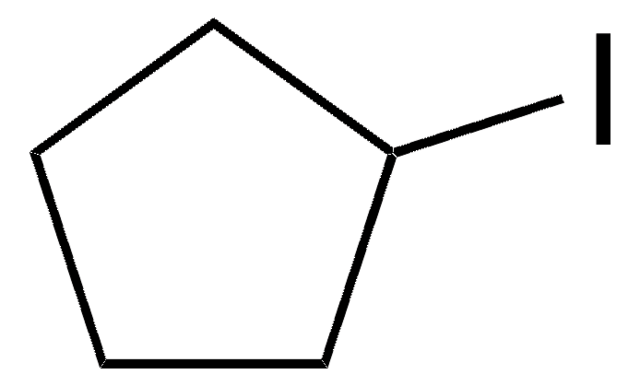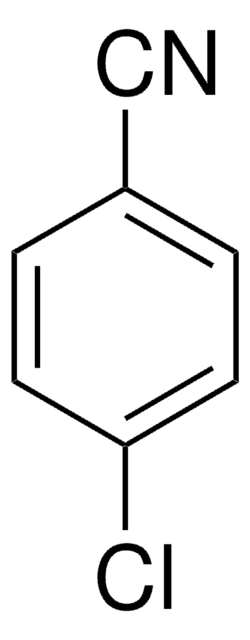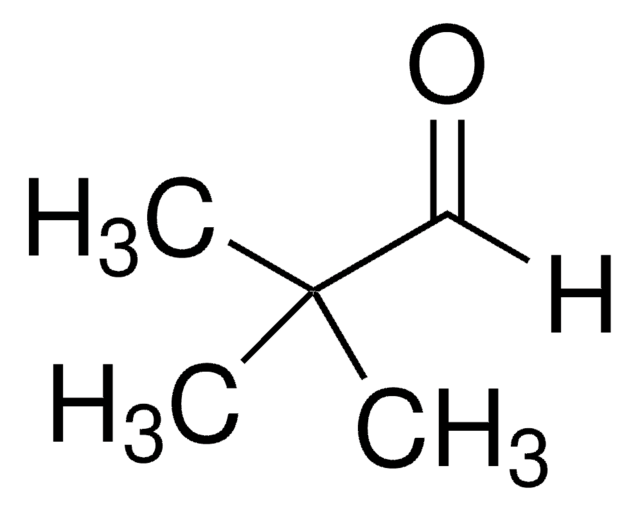155136
Chlorocyclopentane
99%
Synonym(s):
Cyclopentyl chloride
Sign Into View Organizational & Contract Pricing
All Photos(1)
About This Item
Empirical Formula (Hill Notation):
C5H9Cl
CAS Number:
Molecular Weight:
104.58
Beilstein:
1900557
EC Number:
MDL number:
UNSPSC Code:
12352100
PubChem Substance ID:
NACRES:
NA.22
Recommended Products
Quality Level
Assay
99%
form
liquid
refractive index
n20/D 1.4512 (lit.)
bp
114 °C (lit.)
density
1.005 g/mL at 25 °C (lit.)
SMILES string
ClC1CCCC1
InChI
1S/C5H9Cl/c6-5-3-1-2-4-5/h5H,1-4H2
InChI key
NDTCXABJQNJPCF-UHFFFAOYSA-N
Looking for similar products? Visit Product Comparison Guide
Related Categories
Application
Chlorocyclopentane was used in the preparation of diastereomeric activation products.
Signal Word
Danger
Hazard Statements
Precautionary Statements
Hazard Classifications
Aquatic Chronic 3 - Eye Irrit. 2 - Flam. Liq. 2 - Muta. 2 - Skin Irrit. 2
Storage Class Code
3 - Flammable liquids
WGK
WGK 2
Flash Point(F)
60.8 °F - closed cup
Flash Point(C)
16 °C - closed cup
Personal Protective Equipment
dust mask type N95 (US), Eyeshields, Gloves
Choose from one of the most recent versions:
Already Own This Product?
Find documentation for the products that you have recently purchased in the Document Library.
Customers Also Viewed
Andrew J Vetter et al.
Journal of the American Chemical Society, 131(30), 10742-10752 (2009-04-03)
Several halogenated substrates are found to participate in C-H bond cleavage reactions with the photochemically generated fragment [Tp'Rh(CNR)] (Tp' = hydrotris(3,5-dimethylpyrazolyl)borate; R = CH(2)CMe(3)). Reaction with 1- or 3-chloropentane gives only terminal C-H activation products. Reaction with 2-chloropentane gives a
Laura A Mertens et al.
The journal of physical chemistry. A, 122(24), 5418-5436 (2018-05-09)
The relative rates of C-C and C-H β-scission reactions of isobutyl radicals (2-methylprop-1-yl, C4H9) were investigated with shock tube experiments at temperatures of (950 to 1250) K and pressures of (200 to 400) kPa. We produced isobutyl radicals from the
Our team of scientists has experience in all areas of research including Life Science, Material Science, Chemical Synthesis, Chromatography, Analytical and many others.
Contact Technical Service